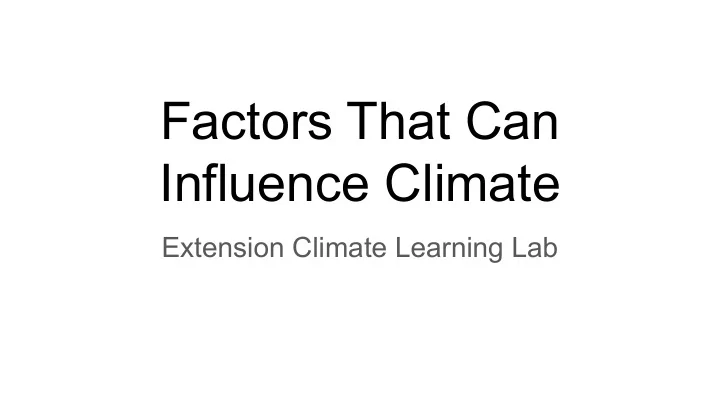

Factors That Can Influence Climate Extension Climate Learning Lab
Latitude How far North or South of the equator a place is located. Generally, it is warmest and wettest near the equator and gets cooler to the North and South. 2
Proximity to water How close a location is to an ocean, lake or river. NEED IMAGE--rainy day near Kalispell? Generally being close to water leads to more precipitation. 3
Topography How flat, hilly or mountainous a place is. NEED IMAGES--plains (E. Montana, SD, etc., mountains in CO, other) 4
Elevation How high above sea level a place is located. Denver, CO is called the mile-high city because it is about 1 mile above sea level. Generally, the higher elevation a location is the cooler its climate will be. 5
Ocean currents and temperatures Movement of warm and cold ocean water, like those driven by El Niño and La Nina conditions, influence temperatures on land. 6
El Niño https://www.usgs.gov/media/images/el-nino-map ⇑ El Niño = trade winds push warm water towards South ⇑ Ocean America... temperature data from El Niño ocean currents … which causes the jet stream to dip South leading to warmer, dryer winters in the US West ⇒ https://oceanservice.noaa.gov/facts/ninonina.html 7
La Niña ⇑ La Niña = strong trade winds push warm water towards Asia ... … which pushes the jet stream North leading to colder, wetter winters in the US West ⇒ 8 https://oceanservice.noaa.gov/facts/ninonina.html
Recommend
More recommend